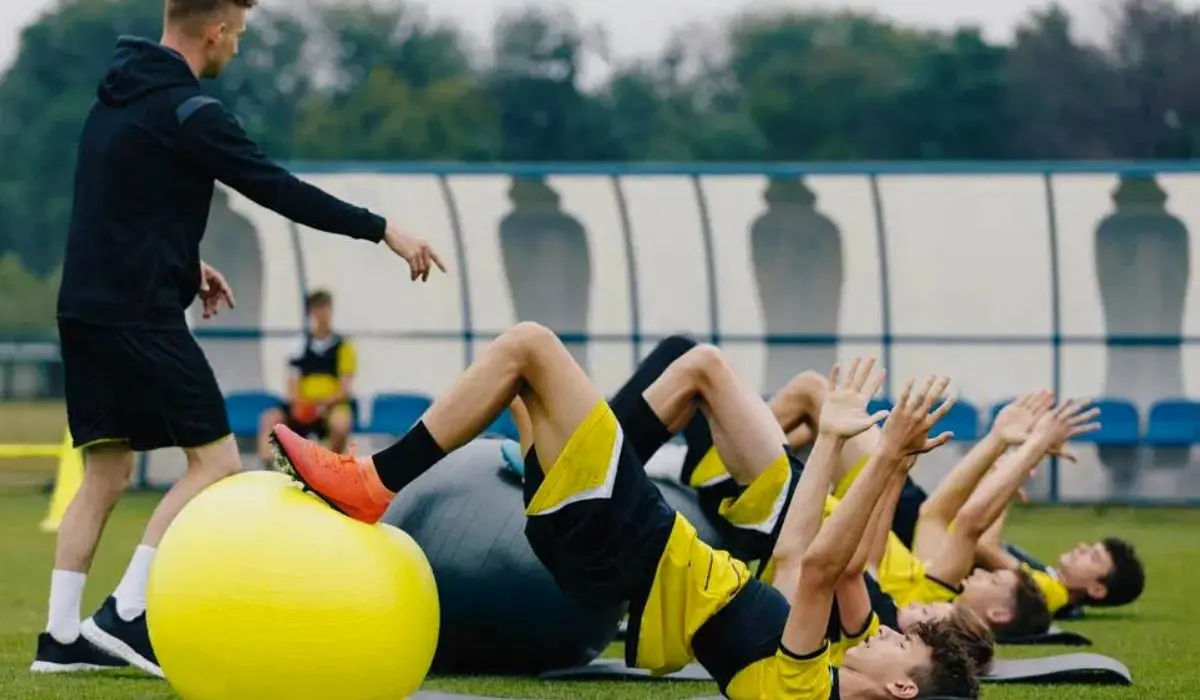When it comes to soccer it is generally viewed that the best rehab for soccer is prehab. That is to prevent the injuries from happening. In the case of rehabilitation for soccer goalkeepers, they can start physical therapy and strength training even before they suffer from an injury. Start it right when you start the training or shortly.
When you are a soccer goalkeeper and face an injury in the middle of playing you have to take note of it. When you feel sudden pain or hear a pop sound you have to realize that something has gone wrong with the muscles.
What Are The Common Rehabilitation For Soccer Goalkeepers?
The common injuries that can happen to a soccer goalkeeper are shoulder and arm injuries, and hamstring injuries. They require a lot of sudden movements and quick jumps using the legs and rapid twists using the shoulder and the arms.
Anything can happen to a soccer goalkeeper and it can not be predicted. Their shoulders might hit on the goal post, or their legs might bend badly when they save a goal, or the sudden leg or arm stretches can tear the muscles or cause stress on them.
A rehab will be needed and it can be said as the time that a player will have to go under relative rest. The rehab can decide when the player can return to soccer and what exercises he/she will have to do under relative rest. And a relative rest is the time that you take complete rest staying away from all the sports activities and the training.
Let us look at the rehabilitation for goalkeepers:
👉Pause
The first step is to pause
We have said many times that when you are suffering from sports injury as the first step you have to take a break from all the sports and other physical activities. This is a time to take proper rest and give your body the time it needs to heal.
👉 Shoulder And Arms Rehabilitation For Soccer Goalkeepers
This is the most common injury among goalkeepers. They might break their collarbone known as the clavicle fracture or tear the glenoid labral or the shoulder joint. To fix the shoulder you have to start gently and gradually approach the goal.
-
Start With Shoulder Strengthening Exercises
-
- Stretching the top of the shoulder joint
- Isometric shoulder exercises
- Pendulum Exercises
Now let us gear towards the leg injuries common among soccer goalkeepers.
Related:- Physical Therapy For Marathon Runners: Is It Beneficial For Your Performance?
Rehab Exercises For Common Hamstring Injuries In Soccer Goalkeeper
If you have leg injuries such as a hamstring strain, the rehab exercises are
👉 R.I.C.E
The term might be new, but the concept is nothing new and you will be familiar with it. Let us elaborate on it as
R – Rest
I – Ice
C – Compress
E – Elevate
So, rest, ice the injured part and compress the injured part to relieve stress and tension from there. Finally, elevate the injured part to keep it at a higher position to reduce the tension that builds up there when it is kept hanging.
👉 Sports Physiotherapy
You can do:
- Strengthening exercises for injured hamstring
- Flexibility exercises for injured hamstring
The Bottom Line
A soccer goalkeeper is prone to injuries and the injury can be on their fingers, arms, shoulders, or legs. The on-the-spot and rapid movements can cause high tension in their muscles and can lead to muscle tearing, bone-cracking, and many complex injuries. As a goalkeeper, if you undergo an injury you are to stop playing and immediately get medical help.
Some of the injuries might not be visible from the outside but you will be feeling a sudden and sharp pain in your body. If you get proper rest, medication if needed, and strengthening exercises you can get back to the game in a short time.
Read More:- Sports Injury Rehabilitation For Swimmers: Find Out The Expert Tips
FAQs
Q. What is the most common injury in soccer goalies?
The most common injury in soccer goalies is tendon ruptures. Finger injuries, shoulder injury as well and leg injuries can happen to them.
Q. Do goalies have bad knees in soccer?
Goalies are supposed to receive and direct blows to their knees. Depending on the type of injury it can be healed with icing and some might even lead to surgery.
Q. Can a goalkeeper play without gloves in soccer?
It is highly recommended not to do that. If they save goals with their bare hands, it can cause more stress and pressure on the hands.
